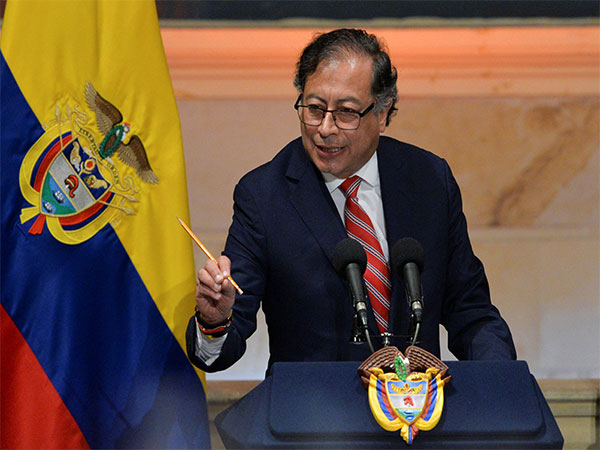U.S. Sanctions Colombia's President, Escalating Tensions Over Drug Trade
The U.S. imposed sanctions on Colombian President Gustavo Petro for failing to curb cocaine trafficking. The escalation in U.S.-Colombia tensions arises from accusations of Petro aiding drug cartels. Trump's administration has intensified its response, halting funding and threatening tariffs on Colombia.

The U.S. government on Friday imposed sanctions on Colombian President Gustavo Petro, further intensifying diplomatic tensions as it accuses him of failing to curb the flow of cocaine into the United States. This move represents a significant degradation in the bilateral relationship, with Washington holding Bogotá accountable for perceived complicity in the drug trade.
Treasury Secretary Scott Bessent cited an explosion in Colombian cocaine production since Petro took office, accusing the Latin American leader of allowing drug cartels to thrive. Adding Petro to a targeting list that includes leaders from Russia, Venezuela, and North Korea marks an assertive policy stance from the Trump administration, which aims to tackle the drug trafficking crisis flooding the U.S. market.
President Petro has vocally objected, referencing his long-standing efforts against drug trafficking. Yet, Friday's sanctions also targeted key figures in his administration and family, including his wife, son, and Interior Minister Armando Benedetti. As Colombia faces potential U.S. tariffs and an aid cutoff, Petro's strategies to control coca production remain under intense scrutiny.
ALSO READ
-
Nationwide News: Trump, Virginia Politics, TV Icon's Passing, Boeing Strike Negotiations
-
Trump Flirts with Third Term: A 2028 Possibility?
-
Trump's Asia Tour: Trade Deals, Diplomacy, and Defense
-
Trump Tunes into Japan: Ford Trucks in the Land of the Rising Sun
-
Trump's Asia Tour: New Trade Allies Amidst Historic Royal Welcome









